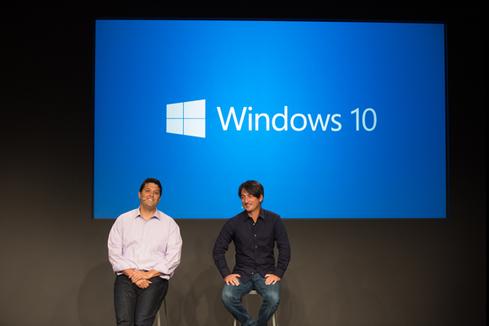Microsoft Cloud Bundle Challenges Salesforce.com
Microsoft bundle of Dynamics CRM, Office 365, and Power BI at $65 per user, per month hits Salesforce.com hard.


Windows 10: 11 Big Changes
Windows 10: 11 Big Changes (Click image for larger view and slideshow.)
Microsoft CEO Satya Nadella and Salesforce.com CEO Marc Benioff may have made nice earlier this year, but Microsoft's Business Solutions unit, which offers Microsoft Dynamics CRM and Dynamics CRM Online, didn't take that as a signal to back off.
On Wednesday, Microsoft offered a super-aggressively priced bundle of Dynamics CRM Online, Office 365, and Power BI at $65 per user, per month. That's the same price that Salesforce.com customers pay for its Sales Cloud alone, and it anticipates an Analytics Cloud widely expected to launch at next week's Dreamforce event in San Francisco (given that Benioff himself started the rumor).
Tight integration between Salesforce CRM and cloud-based Office 365 productivity apps was one of the key components of the alliance worked out between Nadella and Benioff. The other component was the promise of a Salesforce1 App for Windows and Windows Phone to be previewed this fall, with general availability expected in 2015.
[Want the latest Salesforce news? Read Salesforce.com Overhauls Sales, Service Mobile Apps.]
Microsoft's CRM app is already integrated with Office 365 and Power BI, and by packaging them at one, low price, it's anticipating integrations and options that Salesforce.com has yet to offer.
"We love that Salesforce.com recognizes that there's value for their customers in using Office 365, but they have nothing seamlessly integrated at this point," said Fred Studer, GM of Microsoft Dynamics Product Marketing. "For $65 per month, you get sales automation, Yammer enterprise collaboration, conferencing, instant messaging, all of the Office 365 productivity tools, and Power BI visualization, data-exploration, and natural-language search. If you're a Salesforce customer and you have all these things, you're probably paying at least $300 per user, per month."
If customers are already using Office 365, Microsoft Business Solutions is offering an even lower-priced deal, adding in Dynamics CRM and Power BI for $45 per user, per month. The crux of the Microsoft Business Solutions argument is that you can have it all in one cloud.
"Instead of having to go out and access a different tool, right from within Dynamics CRM Online -- because of these seamless integrations -- users have access to all these capabilities," said Studer. "From an IT-management perspective, there's one integrated security model, one integrated [systems] health portal, and the same data centers for Office 365, Power BI, and CRM Online, so governance and provisioning is simple."
Technically speaking, Dynamics CRM Online runs on its own, separate cloud platform rather than the Azure platform, as does Office 365, but they're all Microsoft data centers, and Studer insists the integrations are there to make it look, feel, and operate as one system.
Studer cited a competitive win against Salesforce at Pepsico as a sign of the value of having CRM, productivity apps, and business intelligence tools combined.
"Pepsi's goal was to help their sellers to be as productive and impactful as they could be," Studer said. "They're still early in their deployment, but they see a lot of benefits in having a complete sales productivity solution."
Aggressive pricing may turn heads, but one key to Salesforce.com's appeal is that it's a platform as well as a provider of apps, and there are hundreds of AppExchange partners -- like Marketo, Eloqua, Kenandy, and others -- that offer apps on the same platform. Microsoft has partners, too, but between Azure and the Business Solutions unit, Microsoft has yet to match Salesforce.com's appeal as a enterprise app cloud development platform.
Who wins in cloud price wars? Short answer: not IT. Enterprises don't want bare-bones IaaS for the same reasons they don't buy many $299 PCs at Wal-Mart. Providers must focus on support, not undercutting rivals. Get the Who Wins In Cloud Price Wars? issue of InformationWeek Tech Digest today. (Free registration required.)
About the Author(s)
You May Also Like
How to Amplify DevOps with DevSecOps
May 22, 2024Generative AI: Use Cases and Risks in 2024
May 29, 2024Smart Service Management
June 4, 2024







